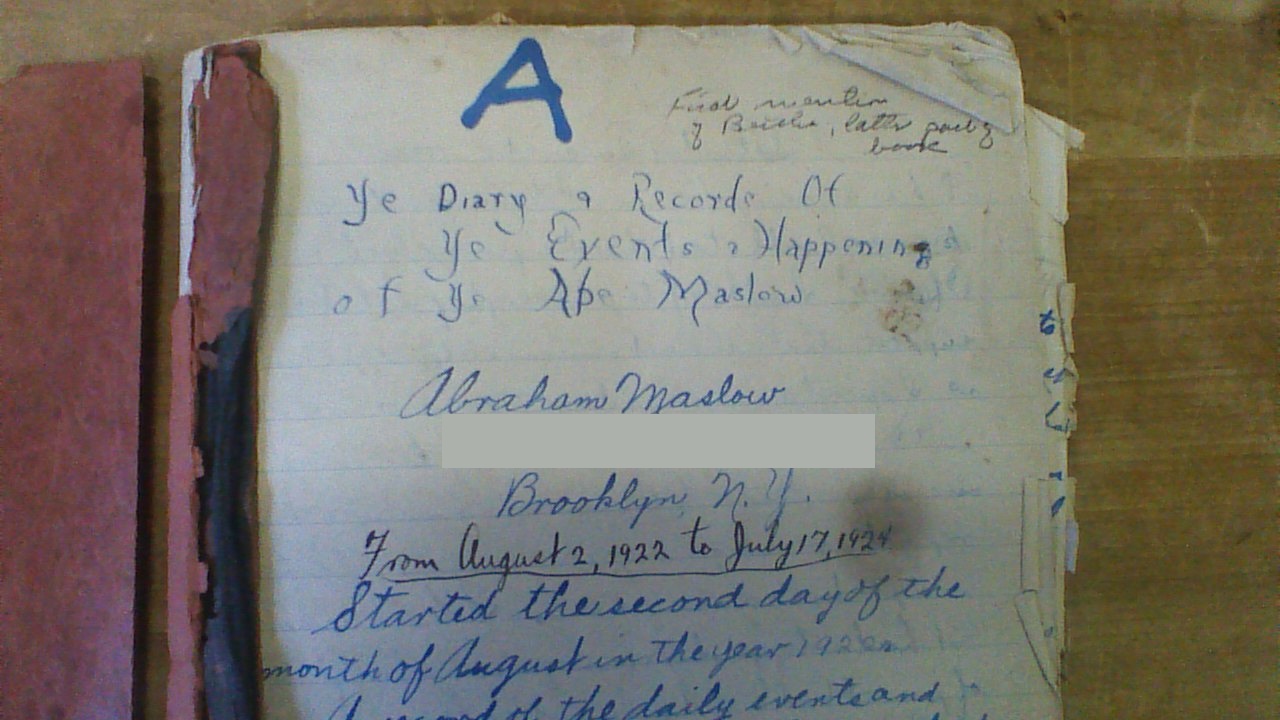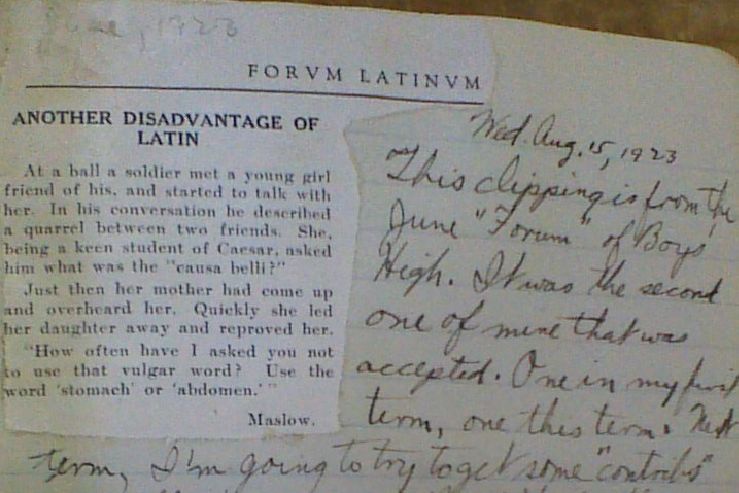I like Abraham Maslow, who created the hierarchy of needs. He focused on how people could live happily as their best self. Contrary to Freud, who theorized all human motivation stems from an innate urge to do evil, Maslow theorized that every human has an innate urge to do good. This was a remarkable, unique thought, not only because psychology at the time focused on reductionist, pessimistic views of human motivation, but because he had a childhood that made him wonder how he turned out sane. He had wondered what made people become excellent, and in the same vein, why people did not shine so bright (Valiunas, 2011).
I also like everyday life– the fabric and texture of a daily experience really engages me. In fact, the further back in time I learn about, the more enchanted I become.
So when I came across Maslow’s high school diary in his finding aid (a convenient list of what and where to find it) in the Center for the History of Psychology’s archive, I was ecstatic. For me, it was the first, but not the last, time in the archives that I deeply felt I had found something really cool. The cover was torn and crumbling, but the inside pages were in good condition, and the handwriting was legible (something I couldn’t say about his later journals).
The first page, rendered in blue ink and attempted calligraphy, displayed “Ye Diary , Records Of Ye Events , Happening of Ye Abe Maslow”. The following pages were exactly that. He started writing when he was 15 years old, starting the second day of his high school career at Boys High School. One can read the rise and fall of the chess club he founded, various outcomes of the baseball games he played in, his brief but optimistic foray into football, his contribution of Latin puns to the school newspaper, tales of his abrasive family members, lazy Sundays, perspectives on his teachers and grades, summer jobs, political commentary, and newspaper clippings. In all, it was an intimate perspective, full of personality and humor– attributes which grew with the years. It was a pleasure not only to have a glimpse into his life and enjoy the 1920’s slang, but to see his writing style become steeped in personal flare, in contrast to the daily lists of events when he first started to journal.
It was a humbling experience to read the diary of an ordinary yet ambitious teenager who would one day radically change the way we think about the human experience. Halfway through the diary, Maslow celebrates the anniversary of the diary’s inception, and he prides himself on keeping with it so consistently. From then on until his death at 63 years old, he kept meticulous journals and rich diaries, exploring and recording his thoughts, feelings, instincts, hopes, and theories. Not only that, but the fact he kept and preserved his first journal must attest to his character, as his collection in the archives is noticeably larger than other psychologists’.
Valiunas, Algis (2011). Abraham Maslow and the All-American Self. Retrieved from: http://www.thenewatlantis.com/publications/abraham-maslow-and-the-all-american-self

